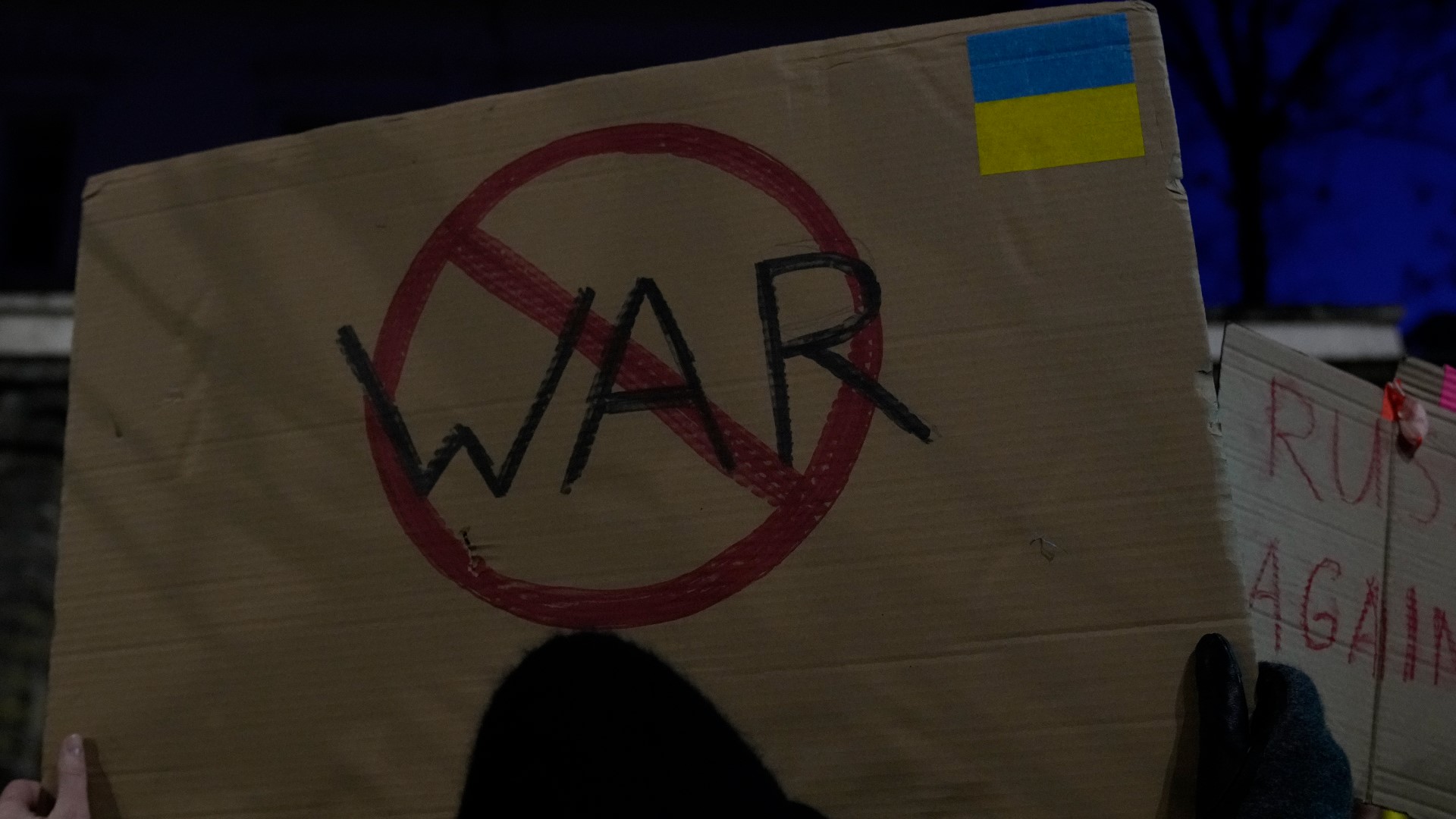WASHINGTON — The Ukrainian government is warning soldiers and civilians on the ground not to believe any video they see showing President Volodymyr Zelenskyy announcing a surrender to Russia, saying they believe the invading country's government would likely use a "deepfake" video in an attempt to get defending Ukrainians to lay down their arms.
The warning was posted Wednesday by the Ukrainian Center for Strategic Communications and Information Security on Facebook. The government agency's official website — alongside most if not all Ukrainian government sites — was taken down after multiple attempted cyberattacks, Reuters reports.
A rough translation of the post, written in Ukrainian, explained that the theoretical video of Zelenskyy would be "almost impossible to distinguish from the real ones," such as video statements Zelenskyy has given over the first week of conflict encouraging his troops to fight on.
The preemptive move from Ukraine to give advanced warnings about possible Russian military plans echoes the tactic used by the U.S. in the months leading up to the invasion. The White House disclosed information publicly about Russia's plans to stage a "false flag" operation in an effort to prevent those plans from being realized.
Deepfake videos are an emerging technology using artificial intelligence to create a digital, lifelike copy of a person able to say whatever the creator wishes.
The videos use samples of the subject's voice and images of them to create a lifelike replica.
It's unclear whether any deepfake videos of Zelenskyy created by Russia have circulated already on social media.
Facebook has banned deepfake videos from their site, after worries that they would be used to instigate conflict during the 2020 election.
Microsoft, the U.S.-based tech company, is aiding the Ukrainian government with warding off cyberattacks targeting critical infrastructure. In a blog post outlining its involvement in the Ukraine-Russia conflict, Microsoft said it was also targeting "state-sponsored disinformation" about the invasion.
The company noted that it has seen an uptick in fake information targeting Ukraine alongside ground warfare.
"The past few days have seen kinetic warfare accompanied with a well-orchestrated battle ongoing in the information ecosystem where the ammunition is disinformation, undermining truth and sowing seeds of discord and distrust," the blog post said.
Online deception is not a new concept for Russia. U.S. officials say the country has been meddling in U.S. elections since before the 2016 election. The goal in the U.S. was to sow distrust in democratic elections and support the Kremlin's favored candidate: Donald Trump, according to a report by the Senate Intelligence Committee.
But in Ukraine, the goal would be much simpler. After a week of fighting, Russian forces have only managed to take one major Ukrainian city and have suffered hundreds, if not thousands, of casualties. Part of the problem, according to reports from Ukraine, is that citizens of the country are fighting back by themselves.
Civilians are blocking roads to slow down or stall Russian convoys. Many have picked up weapons to defend their homes with the blessing of the Ukrainian government. And in some instances, farmers have reportedly hitched up Russian tanks to their tractors and driven them away, with Russian soldiers sometimes running behind.
Zelenskyy is widely considered a popular leader both within Ukraine and internationally for his hands-on approach to the conflict. At one point, he was offered an evacuation from the capital city of Kyiv by the U.S. Defiant, he instead said he needed anti-tank ammo, "not a ride."
A Russian deepfake could sow confusion amid Zelenskyy's troops and people, causing them to falter in their will to fight and giving Russia a chance to regroup and shore up weak supply lines that have caused problems throughout the invasion, including a 40-mile convoy stalled outside of Kyiv.
The warning comes as Russian and Ukrainian envoys have begun meeting for a series of peace talks. The diplomats are hoping to achieve a ceasefire. The second round of talks on Thursday yielded a tentative agreement to set up safe corridors inside Ukraine to evacuate citizens and deliver humanitarian aid.
There have also been unverified social media reports of local Ukrainian government websites being hacked to falsely indicate a "peace treaty" has been signed with the Russian government.
Those reports could not be independently confirmed. The websites for local governments in several major Ukrainian cities, including Kyiv and Kharkov appeared offline Thursday. Kharkov's city council building was hit by a cruise missile Wednesday, the area's deputy regional governor said.
In response to an e-mail, the U.S. Department of Defense said the U.S. had no information on the claims regarding any possible plans for Russia to try and use a Zelenskyy deepfake video.

